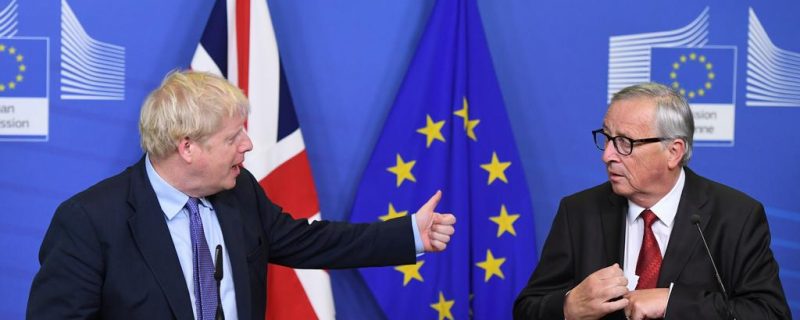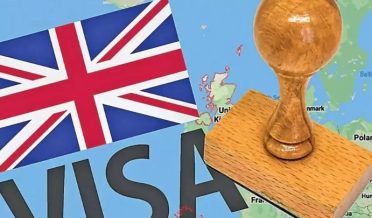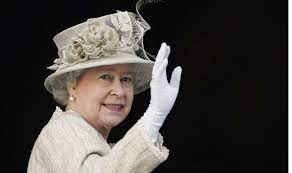Brexit deal was so bad, there are many questions & criticisms on Brexit deal but a few main points from all walks of life are here which we can discuss. Trade has plummeted and red tape has blocked our borders. Is that what ‘protecting our sovereignty’ meant?
Now we know that British exports to the European Union plummeted by a cataclysmic 41% after Brexit on 1 January, what next? This is not the “slow puncture” predicted, but a big bang. Yet so far, it registers little on the political Richter scale.
It should shake the government to the core, but voters are well protected from this unwelcome news by our largely pro-Brexit press. As BBC, Financial Times and Daily Express “Flying start for US trade deal”. There is no “flying start”. Meanwhile, an EU legal action against Boris Johnson is started already for his reneging on the Northern Ireland protocol and thereby imperilling the Good Friday peace agreement.
The Sun, Daily Mail, Daily Express and Daily Telegraph barely cover the EU trade fiascos, says Dr Andrew Jones, part of an Exeter University team monitoring Brexit media stories since the referendum. Currently, Jones says, those papers’ main Brexit story is Britain’s triumph over the EU on vaccines. That trope always omits the fact the UK could have purchased the same volume while in the EU, but it has become the Brexiters’ clinching case.
Unless people read the Guardian, the Financial Times and a very few others, the Brexit damage is fstill invisible, with no lorry queues jamming motorways nor empty supermarket shelves: these may yet happen when delayed import controls are imposed next January.
Met police need reform, not more power
The anger sparked by images of police pinning protesters to the floor at Clapham Common in London yesterday is matched for many by sheer disbelief. How could the Met have got it so wrong? This was a peaceful vigil to mourn the death of Sarah Everard and highlight endemic violence against women. That the man charged with her abduction and murder is one of its officers made it even more necessary for the service to police sensitively and appropriately. Yet instead of working with organisers hoping to create a safe and socially distanced event, they threatened them with large fines. Most attendees were masked and acting responsibly. The Met compounded the anger with a statement blaming the participants, which both a government adviser and a Tory MP suggested was redolent of the language of male abusers. Hundreds more protested today. In a tone-deaf statement likely only to increase public distrust and inflame outrage, the Met commissioner, Cressida Dick, brooked no questions about its actions. She said that each decision sets a precedent. But the case for treating protest separately to other gatherings was already a strong one. In any event, the police response should always be proportionate; this was anything but.
After speaking to Dame Cressida, the home secretary, Priti Patel, has tasked the chief inspector of constabulary with investigating the police response. The mayor of London has also asked the Independent Office for Police Conduct (IoPC) to investigate, declaring himself unsatisfied with her explanation. The commissioner says she is not considering her position. But the real question is not whether she can command the confidence of politicians with whom she must work closely. It is whether the Met can regain the confidence of the public. The commissioner declared the service no longer institutionally racist, while a surge in stop and search has alienated many people of colour, and officers are currently under investigation by the IoPC for allegedly taking and sharing photos of themselves with the bodies of two black women killed last year. After this weekend, many more women and men are questioning whom exactly the police serve. The commissioner’s fate must not distract us from underlying issues. Though the police response to domestic abuse and sexual violence has come a long way, there is much further to go. Like other public services, the police have been left to pick up the pieces from the punitive impact of austerity upon our society. There is wholly inadequate funding for dealing with sexual assault and domestic abuse and their impact.
Tackling male violence against women is a vast and complex challenge, in which the police, prosecutors and courts offer essential parts of a solution. But their failings are not only upon them, but upon the politicians who oversee them and their resources. Ms Patel, far from reining in police and challenging their culture, wants to extend their powers. It is almost beyond belief that the government is proceeding with legislation in the Commons on Monday that will dramatically increase their discretion to curb protests. Though the clauses in the police, crime, sentencing and courts bill have until now gone largely unnoticed, one expert in the field has described them as “in many ways an existential attack on the right to protest” – a cornerstone of democracy. Labour has, albeit tardily, chosen to vote against the measures. They were always dangerous and unnecessary. That is even more obvious now. Police should never be trusted with these powers. They have shown they cannot be trusted with the powers they have.







